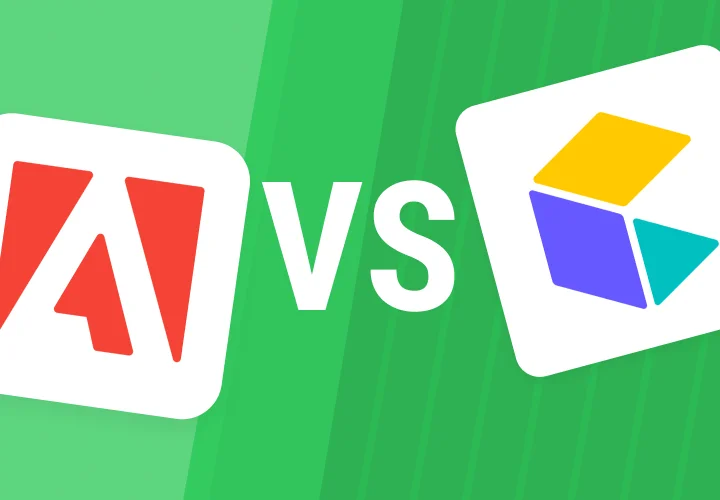Why Magento Is the Best E-commerce Platform to Get Top Grocery Sales
Table of contents
- Benefits of E-commerce Platforms for Grocery Stores
- 1. Offering convenience and flexibility to customers
- 2. Designing a more personalized experience
- 3. Managing inventory more efficiently
- 4. Making data-driven decisions
- 5. Maintaining resilience in crisis situations
- Magento: The Best E-commerce Development Platform for Grocery Companies
- 1. A scalable solution
- 2. High customizability
- 3. A robust product management system
- 4. Inventory management
- 5. Multi-store capabilities
- 6. Flexible delivery options
- 7. Advanced search tools
- 8. A user-friendly shopping experience
- 9. Tools for promotional campaigns
- 10. Integration with other systems
- 11. Analytics and reporting tools
- 12. Community and support
- Magento: Benefits and Drawbacks
- Transforming Grocery Retail: Success Stories of Online Expansion with Magento
Fueled by the ease of buying online and driven by the COVID-19 pandemic, more and more shoppers are opting to get their everyday products through their phones, leading to a 55% increase in online grocery purchases across Europe, as reported by McKinsey. With 95% of purchases expected to be facilitated by E-commerce by 2040, brick-and-mortar stores are scrambling to build an online presence through E-commerce platforms.
Read on to learn why it’s a good idea to implement an E-commerce platform for your grocery business and why Magento is the best option. And if you need support in this journey, Emerline E-commerce experts are ready to help you with your online business.
Benefits of E-commerce Platforms for Grocery Stores
Going online helps grocery stores increase their sales and maintain a competitive advantage against other contenders by:
1. Offering convenience and flexibility to customers
Ordering food and home essentials through a few effortless taps on a mobile application helps to save time and effort while allowing for the flexibility to order at any time of the day or night. This added ease also allows grocers to reach a larger audience and increase their sales.
2. Designing a more personalized experience
E-commerce platforms simplify the collection of customer data, allowing for a personalized shopping experience with tailored recommendations.
3. Managing inventory more efficiently
Inventory management in virtual stores is significantly easier than in physical stores, with real-time inventory tracking preventing the understocking and overstocking of products.
4. Making data-driven decisions
E-commerce platforms collect and analyze information about consumer behavior and preferences, allowing for smart, data-informed decision-making. Grocers can also design targeted promotions and marketing campaigns based on this data, increasing consumer engagement and sales.
5. Maintaining resilience in crisis situations
The COVID-19 pandemic highlighted the vulnerability of traditional businesses to crises that could limit movement and disrupt the functioning of physical stores. Rain or shine, food and other essentials will remain a fundamental need for customers, and building an E-commerce store allows grocers to stay relevant.
Magento: The Best E-commerce Development Platform for Grocery Companies
In the dynamic realm of grocery retail, Magento emerges as the definitive choice for businesses seeking to increase grocery sales through their website as it offers:
1. A scalable solution
Magento's architecture is designed to handle large spikes in traffic and transactions, such as those seen during holiday seasons, making it a scalable solution for growing grocery companies.
2. High customizability
The platform allows grocery businesses to tailor it to their unique requirements for displaying products, managing inventory, and handling delivery schedules. Our Magento development company will help your business leverage these advantages.
3. A robust product management system
It also includes features for organizing a diverse range of products into categories, managing attributes, and handling variations like sizes or flavors.
4. Inventory management
Magento offers inventory tracking and real-time stock updates, helping businesses maintain optimal inventory levels, which is especially important for perishables like food items.
5. Multi-store capabilities
The E-commerce platform’s multi-store capabilities allow companies with multiple locations to manage all their stores from a single admin panel, streamlining operations and centralizing data.
6. Flexible delivery options
It offers various delivery options, including same-day delivery, time slots, and click-and-collect, enhancing convenience for buyers.
7. Advanced search tools
It provides advanced search capabilities and filtering options to help customers quickly find specific items and enhance the shopping experience.
8. A user-friendly shopping experience
Magento delivers responsive design capabilities, ensuring a consistent and user-friendly shopping experience across various devices, including mobile phones and personal computers.
9. Tools for promotional campaigns
It comprises a range of tools for creating and managing various promotional campaigns to attract and retain customers.
10. Integration with other systems
The platform offers APIs and extensions that enable seamless integration with third-party software such as ERP (Enterprise Resource Planning) and POS (Point of Sale) systems.
11. Analytics and reporting tools
Magento offers analytics and reporting tools to gain insights into customer behavior, sales trends, and overall performance, which can be harnessed to make meaningful decisions to increase sales of food and other items.
12. Community and support
Magento has a strong community of developers and users, which means access to a wealth of resources, tutorials, and extensions that can enhance the functionality of your website, leading to increased sales in the long run.
Magento: Benefits and Drawbacks
Ranking among the top E-commerce platforms, Magento offers a host of functionalities and benefits to clients. However, there are a few downsides to Magento, namely:
- The technical expertise required to operate it
- Time required for set-up
- Potentially higher hosting costs due to its resource-intensive nature
- The steeper learning curve users might face
Despite its complexity and potential costs, Magento is a powerful choice for businesses looking to create sophisticated and tailored E-commerce experiences. Some of its many advantages include:
- Unparalleled customization capabilities
- Impressive scalability
- An extensive set of built-in features for marketing, SEO, catalog management, etc.
- Multi-store management option
- Capacity to optimize visibility through SEO compatibility
- Presence of a strong community of developers, providing access to resources, plug-ins, and support
Transforming Grocery Retail: Success Stories of Online Expansion with Magento
Over the past few years, the grocery retail landscape has undergone a remarkable transformation, and at the heart of this revolution lies the inspiring success stories of expansion facilitated by Magento. Notable grocery businesses that created a website using this platform include:
- Aldi
- Tesco
- Carrefour
- Asda
- Coop
- Delhaize
- Kroger’s
- Whole Foods Market
- Sainsbury
In a rapidly evolving market where businesses of all sectors are shifting their commerce online, embracing E-commerce in the grocery industry is pivotal for staying competitive. With its scalability, customizability, and robust features, Magento distinguishes itself as the top choice for grocery businesses looking to boost sales online. With Magento, grocery businesses can harness the power of online sales and adapt to ever-evolving consumer demands, ensuring a promising future in a world shifting to online.
Updated on Feb 7, 2024





